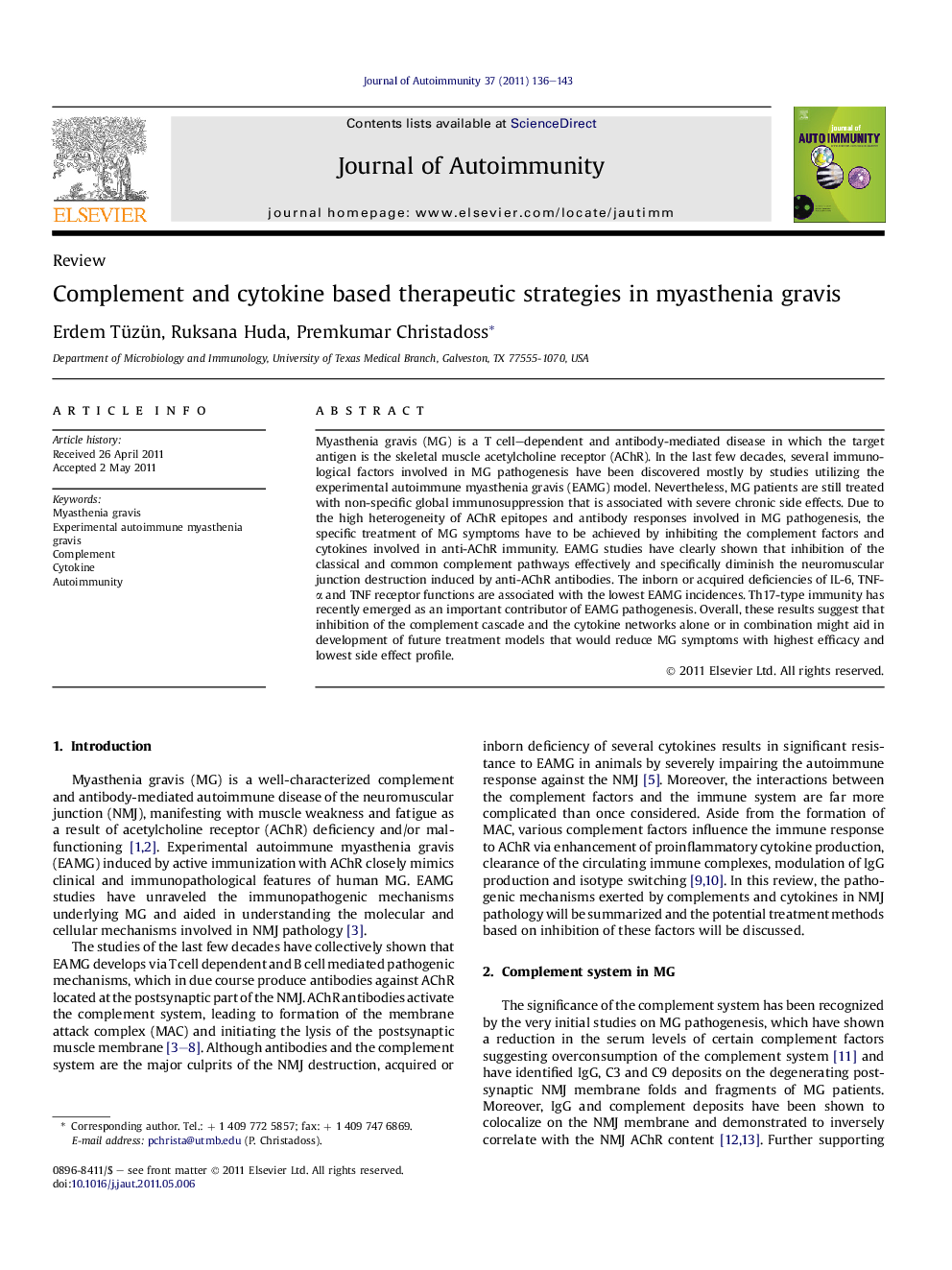| Article ID | Journal | Published Year | Pages | File Type |
|---|---|---|---|---|
| 3367972 | Journal of Autoimmunity | 2011 | 8 Pages |
Myasthenia gravis (MG) is a T cell–dependent and antibody-mediated disease in which the target antigen is the skeletal muscle acetylcholine receptor (AChR). In the last few decades, several immunological factors involved in MG pathogenesis have been discovered mostly by studies utilizing the experimental autoimmune myasthenia gravis (EAMG) model. Nevertheless, MG patients are still treated with non-specific global immunosuppression that is associated with severe chronic side effects. Due to the high heterogeneity of AChR epitopes and antibody responses involved in MG pathogenesis, the specific treatment of MG symptoms have to be achieved by inhibiting the complement factors and cytokines involved in anti-AChR immunity. EAMG studies have clearly shown that inhibition of the classical and common complement pathways effectively and specifically diminish the neuromuscular junction destruction induced by anti-AChR antibodies. The inborn or acquired deficiencies of IL-6, TNF-α and TNF receptor functions are associated with the lowest EAMG incidences. Th17-type immunity has recently emerged as an important contributor of EAMG pathogenesis. Overall, these results suggest that inhibition of the complement cascade and the cytokine networks alone or in combination might aid in development of future treatment models that would reduce MG symptoms with highest efficacy and lowest side effect profile.
